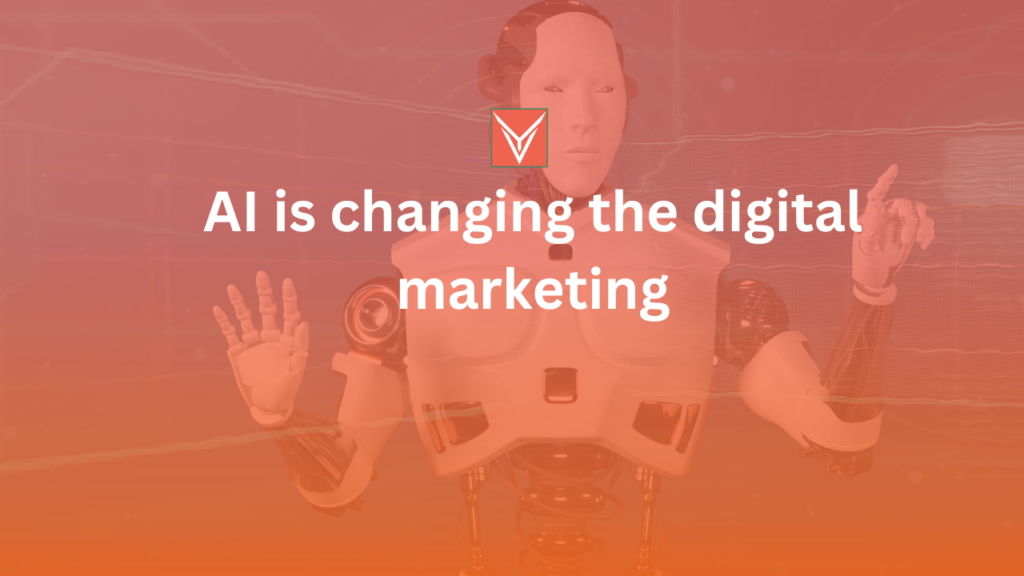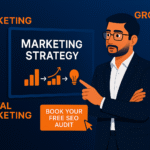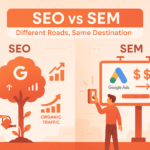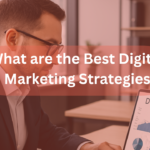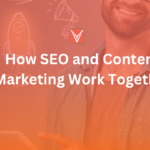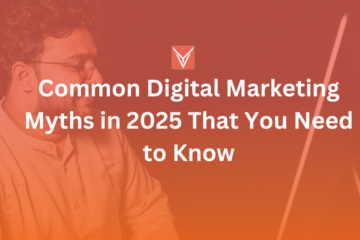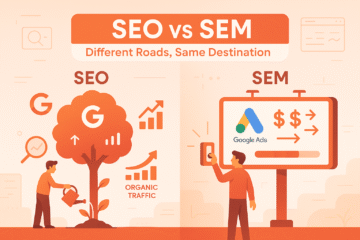Artificial Intelligence (AI) is now not only a futuristic idea or a generation targeted at robots. Today, AI is changing digital marketing landscape, supplying a myriad of applications that automate tasks, personalize content, prepare leads and examine or expect purchaser behavior.
As tech companies race to increase bigger and better tools, AI is becoming crucial to improving productivity and performance throughout numerous industries. So, in this blog, I will discuss the profound impact AI is having on digital marketing, including its pros and cons, special approaches to AI in marketing, the question of AI replacing digital marketers, and the future of AI in this field.
The Pros and Cons of AI in Digital Marketing
Pros of AI in Marketing
Boosts Productivity: AI extensively boosts productiveness by automating repetitive tasks, permitting entrepreneurs to recognize more creative and strategic endeavors. For instance, AI tools can schedule and submit on social media channels based entirely on the most excellent time to engage audiences.
Drives Efficiency: AI improves efficiency in everyday tasks such as data input, sorting marketing campaign leads, and responding to client queries. By handling those habitual obligations, AI frees up marketers’ time for high-level strategic planning.
Offers Insights: AI’s information also offers special insights into customer conduct and marketing campaign performance, which supports marketers in making informed strategic decisions.
Personalization at Scale: AI can analyze vast amounts of customer data to create tailored content material and tips and significantly enhance the client experience. For instance, AI can segment email marketing campaigns to target particular customer groups with customized messages based on their actions or performance.
Content Generation and Optimization: AI tools can generate and optimize content at scale for various digital channels and are crucial for search engine optimization. By inputting prompts into AI tools like ChatGPT, marketers can target specific keywords or phrases that align with client intent.
Also Read this: How To Start Using AI Agents To Transform Your Business
Boosts ROI: AI insights assist in predicting buying behavior, improving user experience, and offering relevant content material at every stage of the advertising and marketing funnel, hence boosting ROI.
Predictive Analysis: AI makes use of historical data to expect marketplace trends and consumer behavior and also helps in more accurate and powerful plans.
Cons of AI in Marketing
- Lack of Accuracy: Errors in data can lead to inaccuracies in analysis and costly commercial business decisions. Marketing also assures that data quality is a crucial factor in AI performance.
- Required Skills: While AI tools have become more accessible to everyone, they still require a certain level of knowledge and talent to apply effectively. Marketers must spend in upskilling and obtaining practical expertise with AI tools.
- Bias: AI is only as appropriate as the statistics it uses, and biased records can result in biased results. Marketers need to be alert about capacity gender, racial, cultural, or socioeconomic biases in AI-driven selections.
- Data Sensitivity and Security: AI systems frequently use massive datasets that may consist of sensitive statistics. They need to manage this information securely which is vital to defend customer privacy and comply with regulations.
- Ethics: Ethical concerns surrounding AI encompass issues of consent, manipulation of user data and behavior, and also the “stalking factor” in hyper-focused advertisements. Marketers need to navigate these ethical challenges carefully.
- Transparency: The market is seeing an increase in AI-generated content. so, the questions on plagiarism, authorship, transparency and intellectual protection become increasingly more appropriate.
Different Types of AI in Marketing
1. Machine Learning (ML)
Machine learning allows machines to solve problems independently by reading previous data sets and making predictions based on the records. For marketers, ML is used in applications which include advert targeting, lead generation and SEO. Social media structures like Facebook, X (previously Twitter), and Instagram use ML in their algorithms to enhance user enjoyment and simplicity of use. ML can examine large sets of customer data to pick out patterns, categorize customers and tailor content for each segment also improving engagement and conversion rates.
2. AI Assistants and Chatbots
AI assistants and chatbots use ML and Natural Language Processing (NLP) to engage with clients and customers. They can respond to inquiries, complete orders, and offer customer service. It’s now common to encounter chatbots on websites, supplying help and gathering visitor’s information. Platforms like Drift and Intercom offer automated response systems, even as manufacturers like Glossier, Uber, and Netflix use Lyro for customer interactions. Walmart’s internal app, “My Assistant,” serves its employees by answering questions and helping with tasks, demonstrating the capabilities of AI.
3. Voice Search
AI’s capability to handle voice popularity and integrate various search methods is increasingly critical. Voice search utilization is rising, with 62% of Americans using voice assistants and 36% proudly owning clever speakers like Alexa or Siri. Google’s AI-pushed voice recognition technology is incorporated into products like Google Search, Google Assistant, and Google Home devices. For marketers, optimizing for voice search is critical as clients assume accurate and immediate responses from their voice-activated devices.
4. Marketing Automation and Personalization
AI marketing automation uses ML algorithms to optimize advertising activities, improving personalization, value-effectiveness, ROI and allowing data-collecting decisions. By information purchaser conduct and preferences, AI enables advertisers to craft centered advertising and marketing techniques. For instance, dog food agency Tails.com used Google’s AI-powered equipment to triple conversions and gain a report excessive in trial signal-ups.
Will AI Replace Digital Marketers?
The question of whether AI will replace digital marketers is a subject of tons debate. While AI can perform many essential tasks effectively, it still requires human intervention to study, tweak and optimize its outputs. Because it forms misleading data, which is not a good thing for all of us. AI needs to be used as a tool that complements advertising activities rather than replacing human marketers.
Hands-on experience with AI tools is crucial for boosting their full ability and integrating them efficiently into marketing strategies.
Conclusion
AI is undeniably transforming the digital marketing landscape. AI offers numerous advantages to entrepreneurs by automating tasks, personalizing content, and providing valuable insights. However, it also faces many challenges, including accuracy, bias, ethics, and data security issues. The key to achievement lies in the use of AI as a device to beautify advertising and marketing efforts in preference to replace human creativity and strategic thinking.
Now, I hope that after reading this informative you know that How AI is Changing Digital Marketing, its pros and cons and many other informative stuff. Stay connected with me if you want more knowledgeable stuff related to SEO and Digital marketing.

